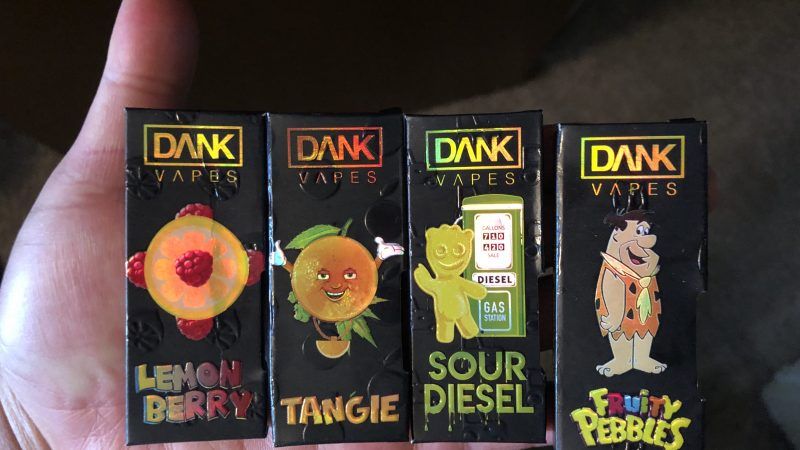The Wall Street Journal Blames Marijuana Legalization for Vaping-Related Lung Injuries, a Black-Market Hazard
The main danger to vapers is illicit cannabis extracts of unknown provenance and composition.

Demonstrating a fundamental misunderstanding of how black markets work, a Wall Street Journal editorial blames marijuana legalization for vaping-related lung injuries involving illicit cannabis extracts. "A surge in vaping related lung illnesses this year caught the medical community by surprise, with the Centers for Disease Control and Prevention (CDC) reporting more than 2,500 lung illnesses and 54 deaths," the Journal says. "This is another reminder that America is undertaking a risky social experiment by legalizing and especially destigmatizing cannabis, and the potential effects are hard to foresee or control."
Since those lung illnesses overwhelmingly involve black-market marijuana products, the lesson from the outbreak is exactly the opposite of the one the Journal draws. The CDC's map of cases shows they are concentrated in states where marijuana remains illegal for recreational use, including Florida, Illinois (where legal recreational sales do not begin until next week), Minnesota, New York, Pennsylvania, Texas, and Utah. The one major exception is California, where illegal dealers still account for nearly three-quarters of the market, thanks to heavy taxes, licensing delays, onerous regulations, and local bans.
The CDC itself highlights the dangers of THC vapes obtained from "informal sources like friends, family, or in-person or online dealers." In a CDC survey reported last month, 96 percent of patients who developed respiratory symptoms after vaping THC said they had obtained the products "informally." While two people in Oregon died after vaping THC cartridges they said they had bought from state-licensed shops, those are exceptions to the general pattern. The main problem is a black market in which consumers do not know the provenance and composition of the products they are buying.
In a legal market, it is much easier to guard against potential hazards. Legal manufacturers tell consumers the ingredients in their vapes, and they are liable for fraud if they lie. Marijuana regulators in Colorado, Oregon, and Washington have banned the use of vitamin E acetate, a cutting and thickening agent strongly implicated in the lung injuries. State-licensed laboratories in places where marijuana is legal can test products for that ingredient and other potentially harmful additives or contaminants. Vitamin E acetate, which the CDC has found in nearly all of the lung fluid samples from patients it has tested, is a relatively new additive that started showing up in illegal THC cartridges this year, which coincides with the recent outbreak.
The Journal's reasoning, in short, is completely backward. By the same logic, the hazards of black-market booze, such as government-mandated poison in diverted industrial ethanol, would have counted as an argument against repealing alcohol prohibition.


Show Comments (10)